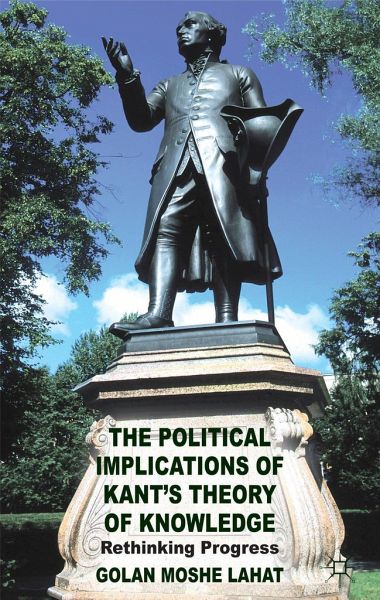
The Political Implications of Kant's Theory of Knowledge
Rethinking Progress
Versandkostenfrei!
Versandfertig in 6-10 Tagen
38,99 €
inkl. MwSt.
Weitere Ausgaben:

PAYBACK Punkte
19 °P sammeln!
Based on an insightful and innovative reading of Kant's theory of knowledge, this book explores the political implications of Kant's philosophical writings on knowledge. It suggests that Kant offers a stable foundation for the reconsideration of the idea of progress as crucial in matters of political management at the outset of the 21st Century.














